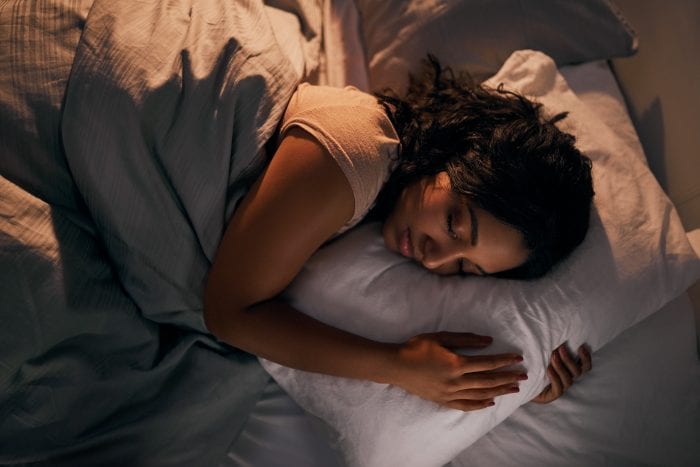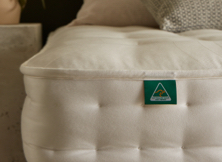The inter-dependant relationship between stress and sleep can make getting the right amount of shut-eye when you’re feeling stressed very hard.

Stress is a regular occurrence and is not always negative
Stress in short bouts can motivate you to perform better and focus, but chronic stress affects the body in a profoundly negative way:
- The body produces adrenaline, epinephrine and cortisol in response to stress. The first two are usually produced in response to danger and work to increase the heart rate and convert fat to energy. Cortisol is commonly known as the stress hormone.
- Breathing can become erratic and shallow, preventing your cells from getting enough oxygen.
- As your body is in danger-response mode your heart beats faster than usual, trying to get blood quickly around your body, priming your body for action.
- Muscles are constantly tight resulting in tension headaches and pain.
Once you are stressed and not sleeping well, this lack of sleep will usually compound or exacerbate the feelings of stress leading to more sleepless nights. Although it sounds a bit counter-intuitive, getting adequate sleep is actually an excellent tool to improve levels of stress.

Following a regular sleep schedule conditions your body to expect sleep
After adhering to a bed time and routine for a week or more, your body will come to expect sleep at this time. Regardless of what’s going on in your daily life, commencing this routine will automatically signal your body to prepare to rest.
Here’s how to keep a regular sleep schedule.
During sleep you restore your body and recharge your mind
Getting your required amount of sleep allows the rejuvenation processes your body requires to take place and means you wake up fresh and ready for whatever the new day brings.

When you are rested you perform your best
When you sleep the mood-regulating parts of your brain are primed, you can calmly and rationally handle your day-to-day problems. Your judgement and decision-making processes are sharpened and you are the best you!
Getting the sleep you need is no quick fix to chronic stress, but altering your core behaviours when it comes to sleep can help alleviate some of the pressure to sleep. If you need some help getting to sleep, read the following articles!


































